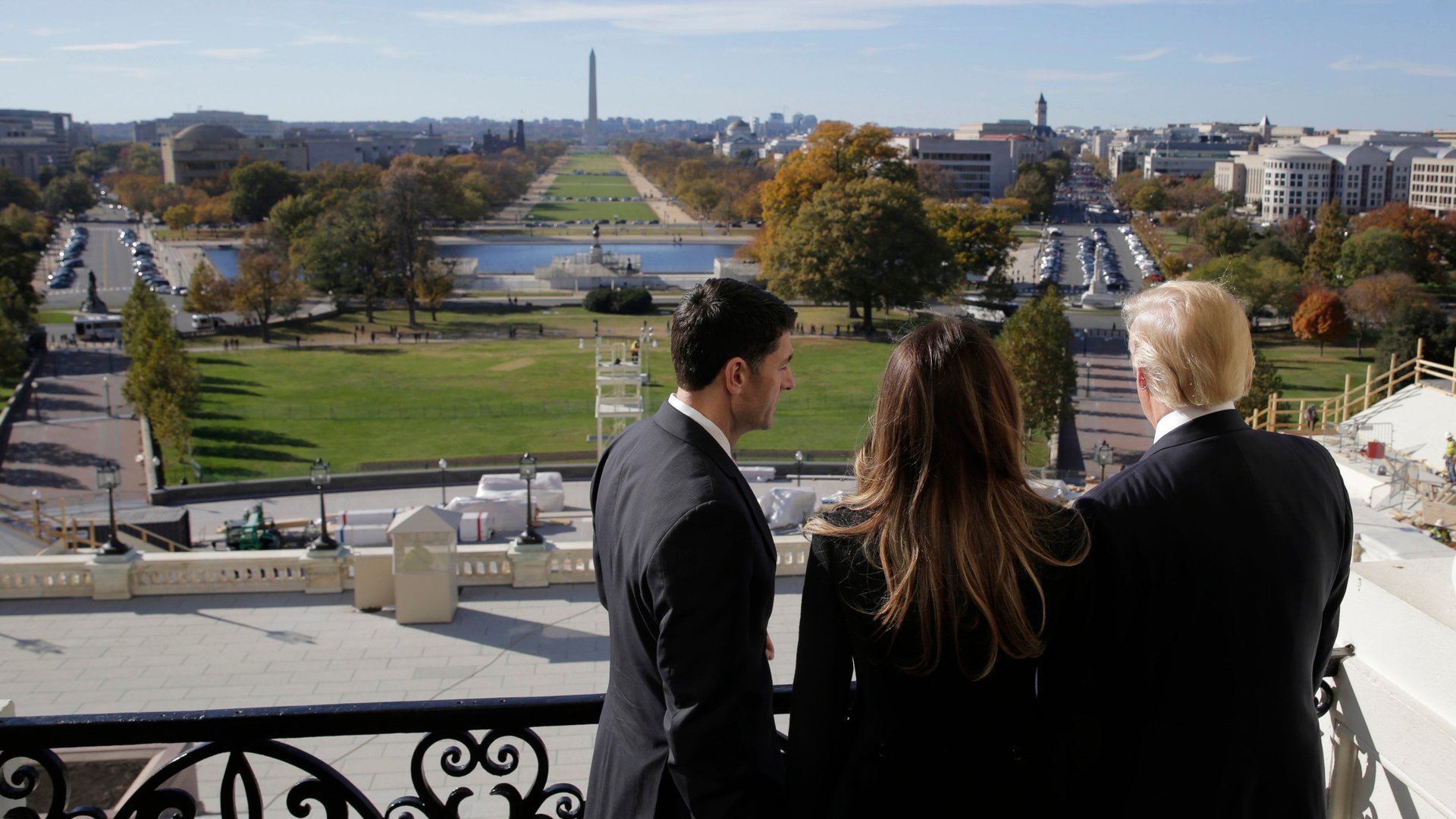Journalists are about to become more important than they have been in decades
On Thursday, president-elect Donald Trump celebrated his victory by ditching his press pool—twice. It was a troubling but unsurprising start for a president elected over the almost-uniform dissent of his country’s press. Impassioned editorials, exhaustive critiques, and endless summaries of Trump’s invective were not enough to persuade a decisive majority of Americans to vote for Hillary Clinton instead.


On Thursday, president-elect Donald Trump celebrated his victory by ditching his press pool—twice. It was a troubling but unsurprising start for a president elected over the almost-uniform dissent of his country’s press. Impassioned editorials, exhaustive critiques, and endless summaries of Trump’s invective were not enough to persuade a decisive majority of Americans to vote for Hillary Clinton instead.
As results came in, many reporters and pundits described this outcome as a failure of journalism. Some were describing a practical failure: We did our jobs poorly. Others sensed a more existential threat: In an era when facts are so little respected, journalism just doesn’t seem to work anymore.
Was this election a failure of the press? Maybe. Our inability to persuade Americans—especially Americans that don’t look, sound, and act like the press corp—to reject bigotry and dismal qualifications, is a black stain.
Historians will debate whether or not reporters could have changed the outcome—there are fewer working journalists than there have been in decades, particularly in many of the places where Trump carried the day. Our credibility is in tatters. Our distribution channels are in chaos.
But no one should question the role of the media in the years to come. A single party will control both houses of Congress and the White House. The Supreme Court’s makeup will change. President-elect Trump is erratic, prone to secrecy, and an outspoken opponent of the press. He has both mocked and excluded reporters. According to one advisor, he keeps a list of enemies, those who opposed his campaign. The role of journalists in checking this dramatic expansion of power will be more important than it has been in decades.
Even in the best of times, the secret workings of government are the stock of a reporter’s trade. We make our stands on issues of White House conspiracy, Capitol Hill cronyism, and corruption at City Hall. Stories as essential as Watergate or the false intelligence behind the Iraq War might well have escaped public notice entirely if not for the singular focus of skeptical reporters. There are certain to be more stories like those in the months and years ahead.
Regardless of their own political beliefs, few journalists would wish for an administration so hostile to the media. In the best case it means we will all labor harder to document policy. In the worst case some of us will be harassed, jailed, or assaulted.
But we have no choice. With the three branches of government coming into alignment, journalists have a duty to assert our role as the fourth estate. We must check the new bearers of power.